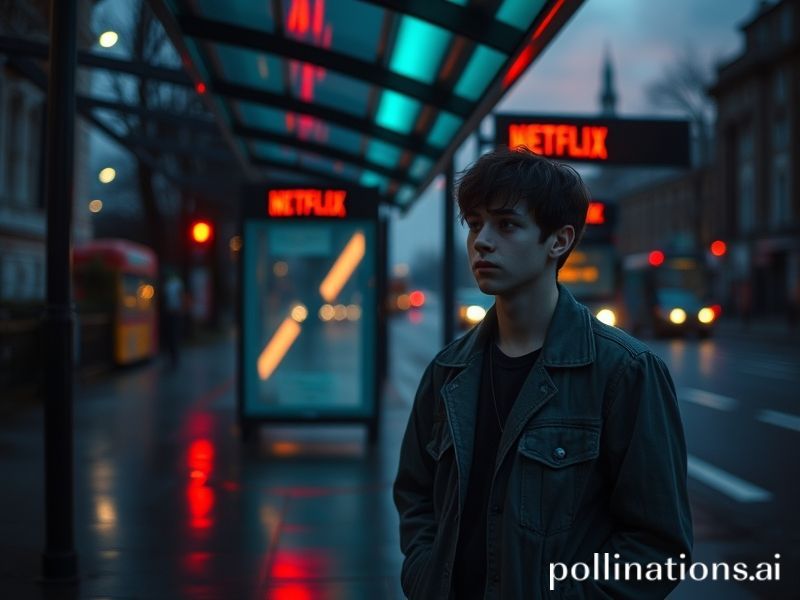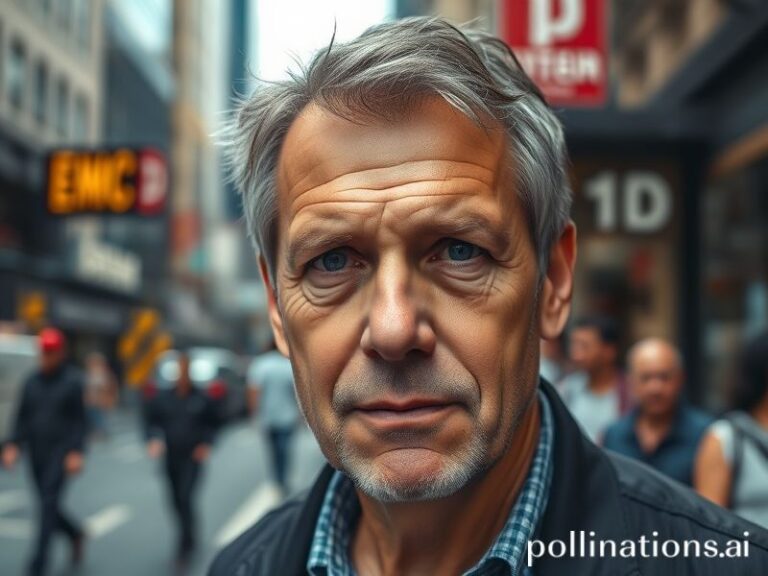Global Puberty Crisis: How Netflix’s ‘Adolescence’ Became the Planet’s Shared Therapy Session
The UN’s official development goals have a new, uninvited sibling: Adolescence, the animated fever dream that just crash-landed on Netflix in 190 countries simultaneously. While diplomats in Geneva still argue over comma placement in climate accords, a cartoon British teenager with anger-management issues and a fondness for graphic masturbation scenes has become the planet’s most efficient cultural export since McDonald’s figured out how to deep-fry local grievances.
Streaming data leaked by a disgruntled employee in Amsterdam (they’ve since been re-educated with complimentary stroopwafels) shows Adolescence trending #1 from Lagos to Lima, dethroning even the perpetual telenovela juggernauts and K-dramas that normally glue humanity to its sofas. The achievement is doubly impressive considering the show’s creative palette—equal parts puberty, panic attacks, and paint-thinner-grade psychedelia—doesn’t exactly scream “universal appeal.” Then again, neither does tax policy, and look how fast that circulates when offshore accounts are involved.
Critics on five continents have lined up to praise the series for “raw honesty,” which is code for “we’re relieved someone finally animated the intrusive thoughts we all pretended not to have.” Chinese censors, ever the connoisseurs of nuance, trimmed four entire minutes from episode three, inadvertently creating a brisk new sub-plot in which the protagonist achieves spiritual enlightenment by staring at a blank wall. The edit is now circulating on Bilibili with the ironic title “Mindfulness for Minors,” complete with fan-made meditation chimes.
Meanwhile, French sociologists—who can turn a baguette into a referendum on existential dread—have declared Adolescence “a late-capitalist bildungsroman for the serotonin-deficient age.” Translation: kids feel seen, parents feel attacked, and streaming executives feel the unmistakable warmth of subscriber numbers climbing faster than a Tokyo rent invoice. Not to be outdone, Brazilian educators are already planning to weaponize the show in classrooms, hoping its frank depiction of anxiety might reduce the national teenage pregnancy rate, or at least distract students from TikTok long enough to learn the reproductive system isn’t just a rumor.
The global merchandising rollout, however, is where the real geopolitical theater begins. Netflix has inked deals to sell limited-edition hormone-monster plushies manufactured in Vietnam, shipped via Dubai, and taxed in Ireland—an itinerary that would make a shell company blush. Protesters in Manila burned a crate of the toys last week, claiming they “promoted moral decay,” apparently forgetting they live in a country where politicians do that just fine without felt genitalia. Sales spiked 37% the following day; nothing fuels capitalism quite like performative outrage.
Of course, every moral panic needs its academic counterweight. Scandinavian child psychologists—who already hand out SSRIs like Tic Tacs—have published a 47-page meta-analysis concluding that Adolescence “mirrors the universal psychosocial turbulence of liminality.” In layman’s terms: puberty sucks everywhere, only the slang changes. The paper was peer-reviewed by three Swedes and one very confused reindeer.
In a quieter subplot, the show’s Arabic subtitles have become a stealth literacy project across refugee camps in Jordan, where teenagers trade bootleg episodes on USB sticks labeled “Homework 2024.” Aid workers report that vocabulary retention is highest for swear words, but hey—multilingualism has to start somewhere.
Conclusion: Adolescence is not merely another piece of content to scroll past while doom-swiping; it’s a planetary group therapy session disguised as a cartoon. From Lagos cybercafés to Oslo co-working pods, the series has confirmed what the passport-stamp crowd always suspected: the awkward, oily, self-loathing stage between childhood and adulthood is the one truly shared human experience. All that’s left is for the UN to add “mandatory streaming breaks” to the Universal Declaration of Human Rights—right between the right to asylum and the right to pretend you never had a crush on a 2D character. Until then, keep your headphones charged and your shame on airplane mode; the world is binge-watching its own mirror.







